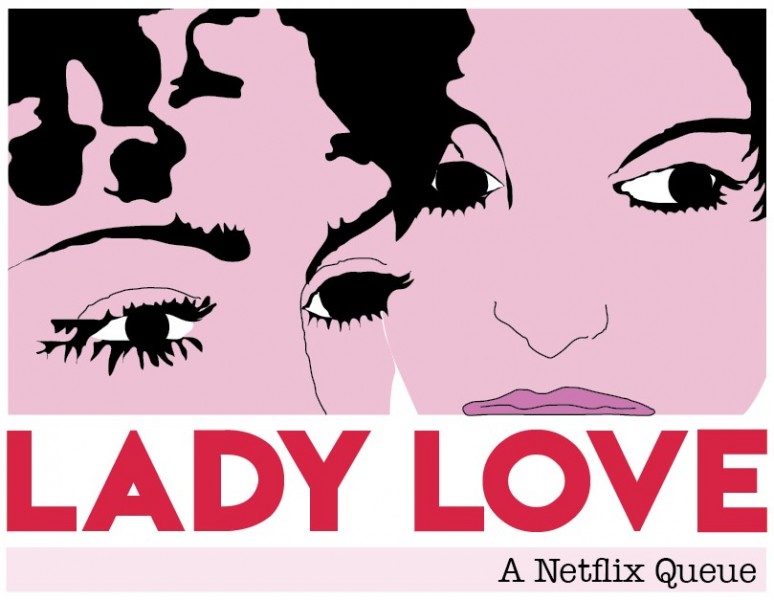Netflix Queue: Lady Love
The romance genre has a long, long history, but only recently have we seen same-sex coupling normalized in the media. From bachelorette parties to summer flings, here are our favorite lesbian films released over the last two years.
Written and directed by Jenée Lamarque
It’s the bachelorette weekend getaway in California wine country before Andi (Constance Wu) and Lu (Angela Trimbur) get married, and they’ve invited seven of their best friends to celebrate. Strangely enough, the eclectic group of invitees don’t seem to know each other too well, and to break the tensions at hand, they all imbibe alcohol and ecstasy. But in the drug-induced stupor, Andi lets slip a major confession that leaves Lu feeling inadequate and puts their relationship on the rocks. Questions of trust and maturity arise revealing Andi’s discomfort with voicing her needs and Lu’s slight self-centeredness. Wu is cool, powerful and adorable in this movie, and she commands the viewers’ attention despite the fact that “Crazy Rich Asians” had yet to hit the big screen and make her a household name. Trimbur’s performance is great, portraying a very real neuroticism and anxiety. There are definitely feel-good moments and moments that will make you cry if you’re emotional enough. Though the cut aways to character interviews are heartwarming, the lack of clarity on their purpose and context make them fall flat. It seems that the characters divulge their sexual awakenings in order to reveal varying depths and complexities of the characters as people, but who is interviewing them? Is this breaking the fourth wall or are the videos in-universe? “The Feels” is just formulaic enough to not be overwhelmingly “indie,” but there are some dull moments. Overall it is solidly good.
Written and directed by Stephen Cone
Confident teenage Cyd (Jessie Pinnick) visits her famous author aunt, Miranda (Rebecca Spence plays the sister of Cyd’s deceased mother), at her childhood home in Chicago. Cyd stays in her mother’s old bedroom for a couple of weeks over the summer, considering colleges and laying out in the sun. While in Chicago, Cyd falls for a girl named Katie (Malic White) who works in a coffee shop. The portrayal of relationships in this film are very delicate, and the ensembles seem especially authentic. Cone’s use of romance is interesting as it is sort of turned on its head. Miranda makes a statement talking about how women don’t need romance to be happy, Cyd all but ignores her boyfriend from home and after she returns home, her romance with Katie passes in due time without the typical drama that ensues in romance genre. Themes surrounding family, intergenerational friendship and comfort permeate this coming-of-age story, and visually the movie is eye candy: pleasing, summery and subdued.
Directed by Miguel Arteta. Written by Miguel Arteta and Alia Shawkat
Naima (Alia Shawkat), a slightly pretentious aspiring actress with intimacy issues, walks into a lesbian bar. The rest is history. She meets an unstable and eccentric musician (who is honestly not very talented) named Sergio (Laia Costa) at a lesbian bar. After hooking up, the pair, jaded by the paths that past relationships have taken, decide to cram an entire relationship into 24 hours. This includes spending every second together without sleeping for a whole day, talking on end about their deepest insecurities, aspirations and secrets, and having sex on the hour, every hour. Of course, everything eventually goes downhill, all taking place over a night and a day. The story has an interesting premise and is visually appealing, but it’s not too full — of meaningful conversation or of content, really. Naima and Sergio talk for hours and only to each other, but their conversations aren’t real enough, don’t warrant falling in love (or into a “relationship”). The use of sex as a device is particularly interesting in this film as it actively strays from being “sexy.” The female anatomy does not cater to the male gaze, and there is so much sex and physical intimacy that the audience almost feels suffocated and exhausted, perhaps meant to reflect the sentiments of Naima and/or Sergio (we’ll let you decide whom). The title of the film itself is a sexual term, unsavory, but real, similar to the portrayal of Naima and Sergio’s relationship.

Your donation will support the student journalists of Tulane University. Your contribution will allow us to purchase equipment and cover our annual website hosting costs.


Leave a Comment